
Kolkata: The Cultural Capital of India
Kolkata, often referred to as the 'City of Joy', is a vibrant metropolis on the eastern bank of the Hooghly River. This city is a fascinating blend of old-world charm and modern advancements. Its colonial architecture, bustling markets, and rich cultural heritage make it a must-visit destination for tourists. Walking through Kolkata, you will encounter majestic structures from the British Raj era, including the iconic Victoria Memorial and the grand Howrah Bridge. The city's cultural heart, however, lies in its local festivals, art galleries, and theaters. Durga Puja is one of the most spectacular festivals celebrated here, turning the city into a carnival of lights, music, and colors. Food lovers will find Kolkata a paradise with its array of street food, local sweets like 'rasgulla' and 'sandesh', and traditional Bengali cuisine. The city also offers a variety of shopping experiences, from the bustling New Market to the quaint shops of College Street, renowned for its book stores. Kolkata is not just about sights and sounds; it’s about the experience of life in its most raw and authentic form. The city's trams, yellow taxis, and hand-pulled rickshaws add a unique charm to its streets, making every journey here an adventure. Whether you are exploring the vibrant neighborhoods of North Kolkata or enjoying a serene evening by the Prinsep Ghat, Kolkata promises an unforgettable experience.
Local tips in Kolkata
- Visit during Durga Puja to witness the city at its most vibrant.
- Try local sweets like 'rasgulla' and 'sandesh' from renowned sweet shops.
- Take a tram ride for a nostalgic experience of the city.
- Explore College Street for the best book shopping experience.
- Use the Metro for quick and convenient travel across the city.
Neighbourhoods in Kolkata
Kolkata: The Cultural Capital of India
Kolkata, often referred to as the 'City of Joy', is a vibrant metropolis on the eastern bank of the Hooghly River. This city is a fascinating blend of old-world charm and modern advancements. Its colonial architecture, bustling markets, and rich cultural heritage make it a must-visit destination for tourists. Walking through Kolkata, you will encounter majestic structures from the British Raj era, including the iconic Victoria Memorial and the grand Howrah Bridge. The city's cultural heart, however, lies in its local festivals, art galleries, and theaters. Durga Puja is one of the most spectacular festivals celebrated here, turning the city into a carnival of lights, music, and colors. Food lovers will find Kolkata a paradise with its array of street food, local sweets like 'rasgulla' and 'sandesh', and traditional Bengali cuisine. The city also offers a variety of shopping experiences, from the bustling New Market to the quaint shops of College Street, renowned for its book stores. Kolkata is not just about sights and sounds; it’s about the experience of life in its most raw and authentic form. The city's trams, yellow taxis, and hand-pulled rickshaws add a unique charm to its streets, making every journey here an adventure. Whether you are exploring the vibrant neighborhoods of North Kolkata or enjoying a serene evening by the Prinsep Ghat, Kolkata promises an unforgettable experience.
When is the best time to go to Kolkata?
Iconic landmarks you can’t miss
Howrah Bridge
Experience the grandeur of Howrah Bridge, an architectural marvel and iconic symbol of Kolkata, connecting the city's vibrant cultures over the Hooghly River.
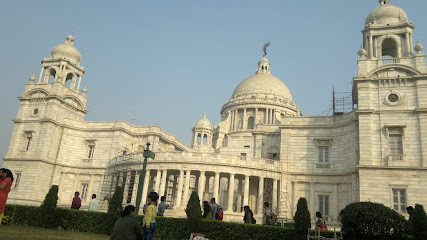
Science City - Kolkata
Discover the marvels of science and technology at Science City Kolkata, an interactive experience for all ages showcasing the wonders of our world.
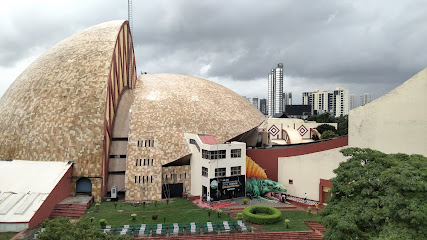
Victoria Memorial
Discover the architectural splendor and cultural richness of Kolkata at the Victoria Memorial, a stunning museum and tourist attraction set in beautiful gardens.
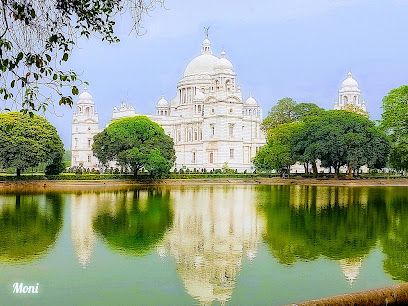
Indian Museum
Discover the rich tapestry of India's cultural heritage at the Indian Museum in Kolkata, home to unique artifacts and captivating exhibits.
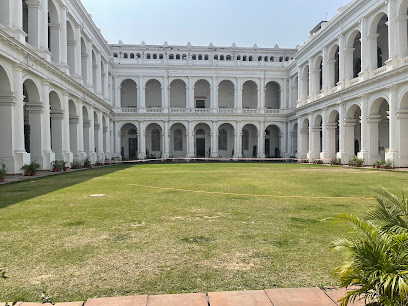
James Prinsep Monument
Explore the James Prinsep Monument, a testament to Kolkata's colonial history, set within a peaceful park along the Hooghly River.
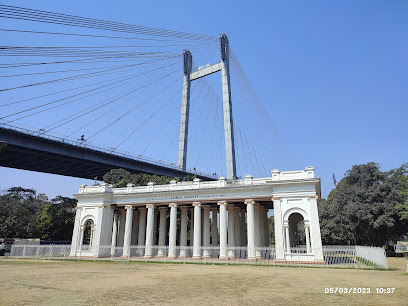
Muhammad Ali Park
Discover the tranquility of Muhammad Ali Park in Kolkata, a green sanctuary perfect for relaxation, exploration, and cultural encounters.
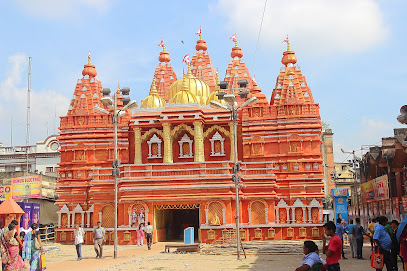
Elliot Park
Discover the serene beauty of Elliot Park, a lush urban oasis in Kolkata perfect for relaxing strolls, picnics, and enjoying nature in the heart of the city.
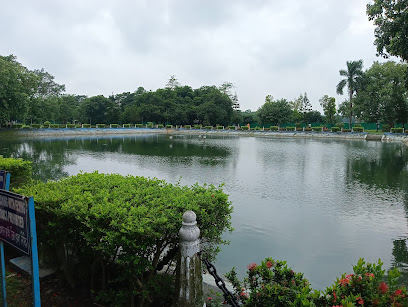
Fort William, India
Explore the historical grandeur of Fort William, a significant fortress in Kolkata that narrates tales of India's colonial past.
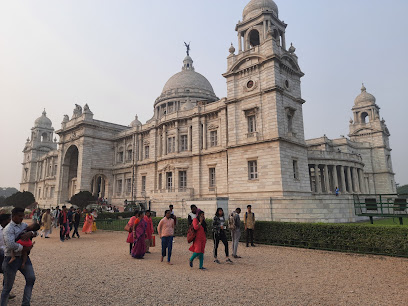
Jorasanko Thakurbari
Discover the rich heritage of Bengal at Jorasanko Thakurbari, the ancestral home of Rabindranath Tagore, filled with art and history.
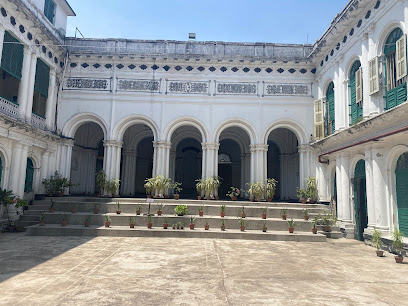
M.P. Birla Planetarium
Discover the stars and celestial wonders at the M.P. Birla Planetarium, an iconic attraction in Kolkata showcasing the beauty of astronomy.

Marble Palace
Explore the Marble Palace in Kolkata, an architectural masterpiece and museum showcasing exquisite art and rich cultural heritage.
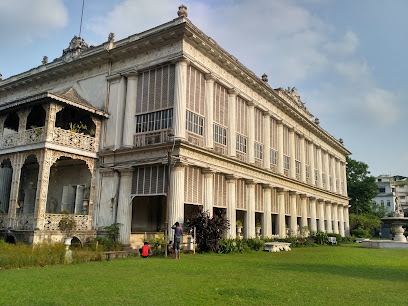
Shaheed Minar
Explore Shaheed Minar, Kolkata’s iconic monument honoring freedom fighters and a beautiful escape into history and nature.
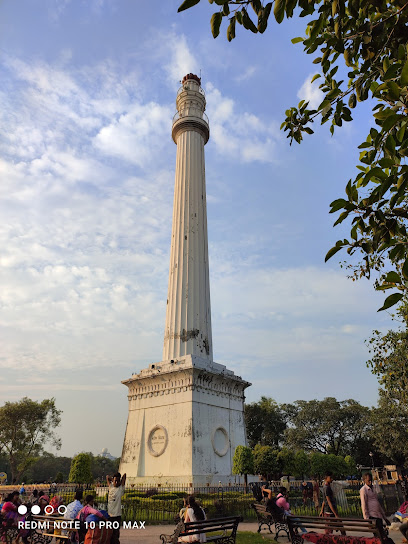
Metcalfe Hall
Explore the grandeur of Kolkata's colonial past at Metcalfe Hall, a museum that unveils the city's vibrant history and architectural beauty.
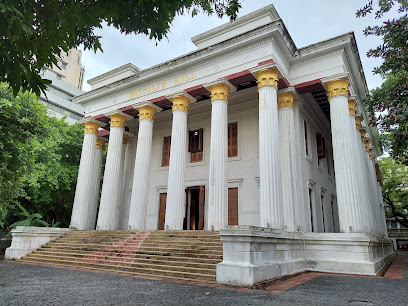
Newtown Clock Tower
Experience the iconic Newtown Clock Tower, a vibrant landmark blending modern architecture and local culture in West Bengal.
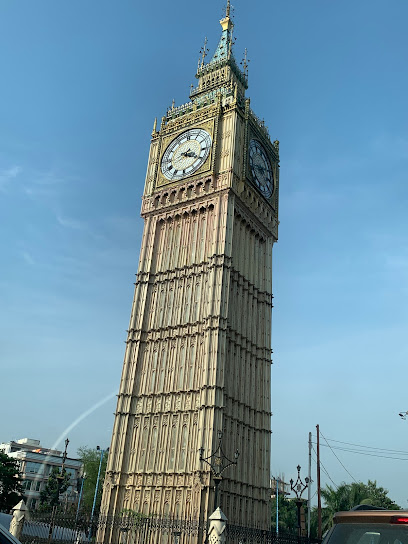
South Park Street Cemetery
Discover the serene beauty of South Park Street Cemetery, a historical gem in Kolkata with stunning architecture and rich stories waiting to be uncovered.
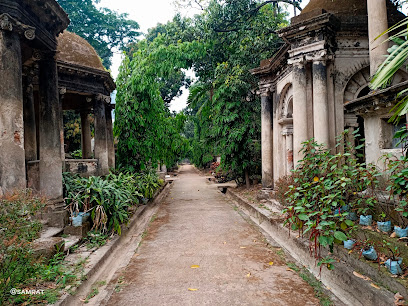
Unmissable attractions to see
Eco Park
Discover the lush landscapes and diverse activities at Eco Park, a serene escape in Kolkata's New Town, perfect for families, adventurers, and nature lovers.
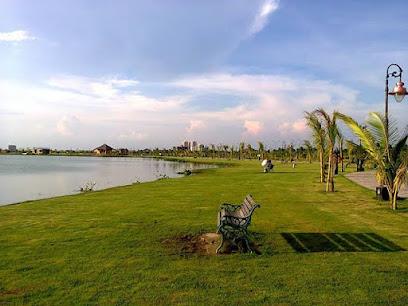
Dakshineswar Kali Temple
Experience the divine tranquility and architectural beauty of Dakshineswar Kali Temple, a sacred site in Kolkata that captivates visitors with its spiritual ambiance.
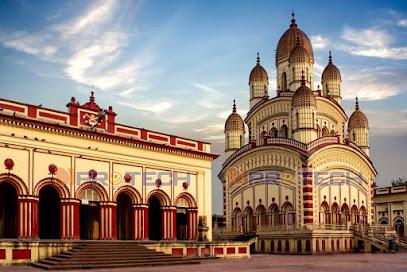
Victoria Memorial
Discover the grandeur of the Victoria Memorial in Kolkata, where history, art, and nature converge in a breathtaking setting.

Alipore Zoological Garden
Explore the vibrant Alipore Zoological Garden in Kolkata, a wildlife sanctuary that showcases diverse species and promotes conservation efforts.
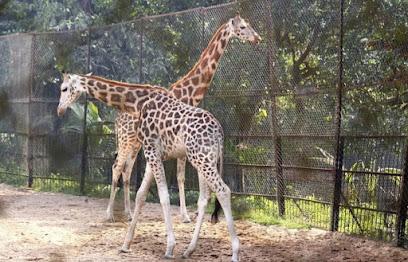
Kalighat Mandir
Discover the divine at Kalighat Mandir, a spiritual haven in Kolkata, where rich traditions and vibrant culture intertwine in a unique pilgrimage experience.
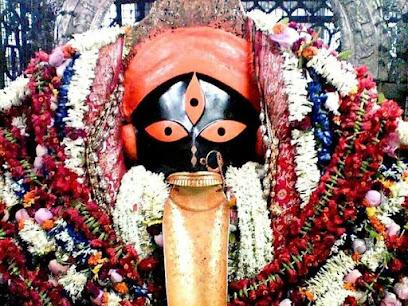
Belur Math
Discover the architectural marvel of Belur Math, a serene temple complex blending spirituality and artistry in Howrah, West Bengal.
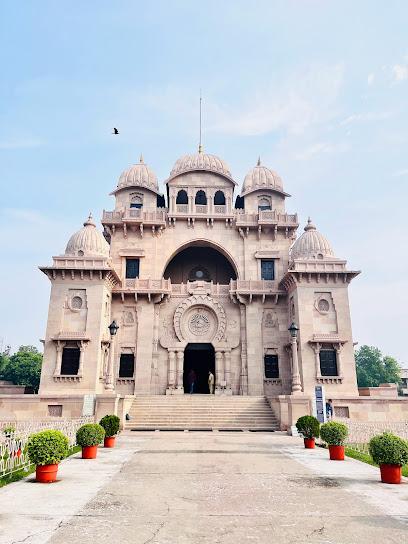
Indian Museum
Explore the vast collections of the Indian Museum, a historic gem in Kolkata, showcasing art, archaeology, and natural history.
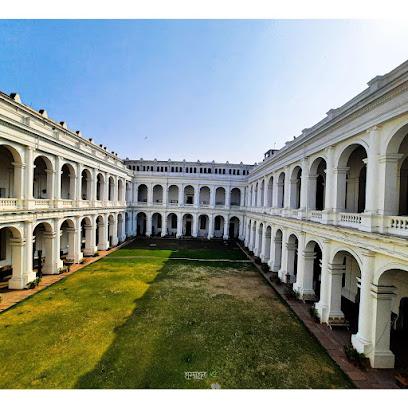
Eden Gardens
Experience the grandeur of Eden Gardens, Kolkata's iconic cricket stadium, where history and passion for cricket come alive.
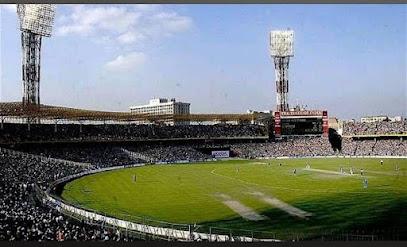
Nandan
Explore the vibrant cultural hub of Nandan in Kolkata, where cinema, performing arts, and Bengali heritage intertwine for an unforgettable experience.
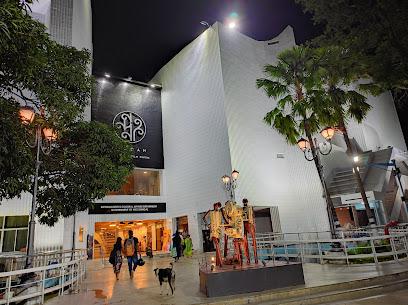
Biswa Bangla Gate
Explore Biswa Bangla Gate, a stunning cultural landmark in New Town, West Bengal, showcasing rich heritage and artistic spirit with picturesque surroundings.
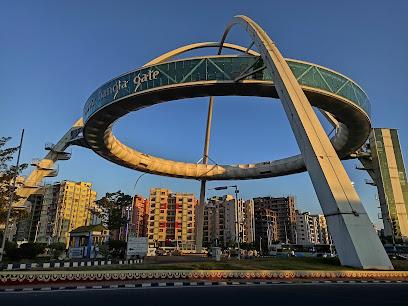
Millennium Park
Experience the tranquility of Millennium Park in Kolkata, a lush urban oasis offering stunning river views and a serene escape from the city hustle.
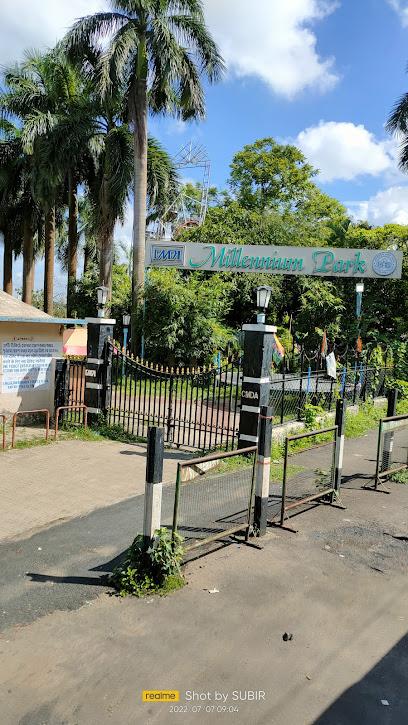
Babughat
Discover the vibrant riverside charm of Babughat in Kolkata, where scenic ferry rides meet rich cultural experiences along the Hooghly River.
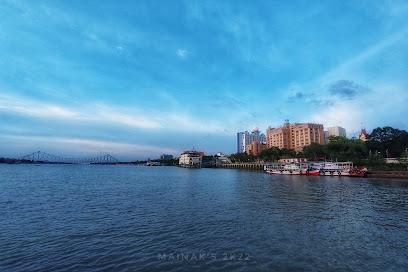
St. Paul's Cathedral
Explore the exquisite beauty of St. Paul's Cathedral, a historical gem in Kolkata showcasing stunning Gothic architecture and serene gardens.
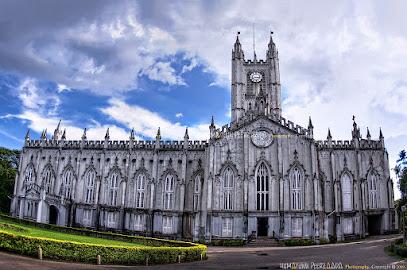
Birla Mandir
Explore the enchanting Birla Mandir in Kolkata, a stunning Hindu temple showcasing exquisite architecture and rich spiritual traditions.
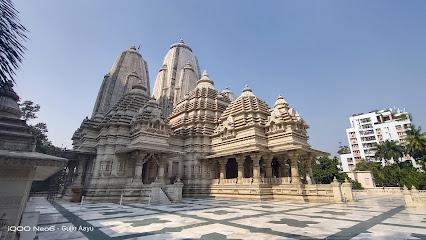
Elliot Park
Discover the serene beauty and vibrant culture of Elliot Park, a lush green escape in Kolkata's Maidan area, perfect for tourists seeking relaxation.
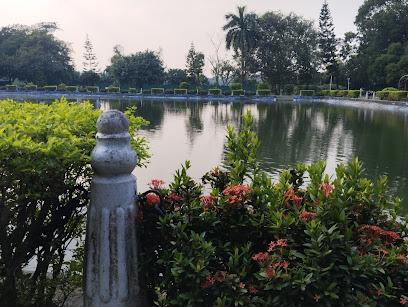
Essential places to dine
Peter Cat
Experience the flavors of North India at Peter Cat - Kolkata's beloved restaurant known for its exquisite kebabs and vibrant atmosphere.
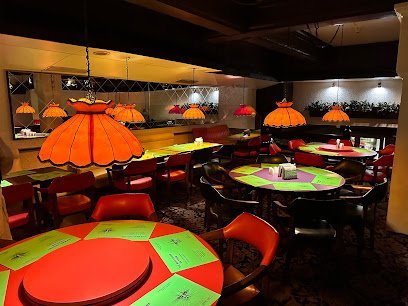
Balwant Singh Dhaba
Savor authentic Punjabi dishes and local delights at Balwant Singh Dhaba in Kolkata - where every meal tells a story.
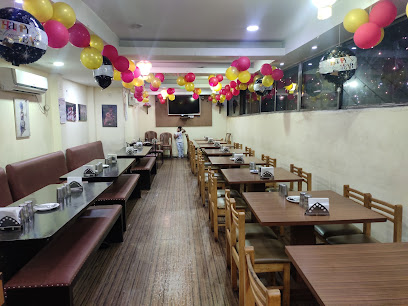
Barbeque Nation- Park Street, Kolkata
Experience the vibrant flavors of Barbeque Nation in Kolkata, where exceptional barbecue meets authentic Indian cuisine in a lively buffet setting.
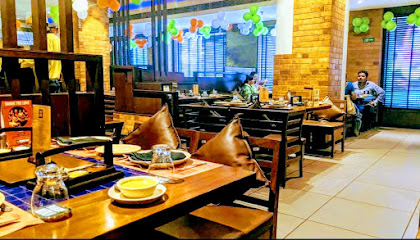
India Restaurant
Discover the rich flavors of Indian and Chinese cuisines at India Restaurant in Kolkata – where every dish tells a story.
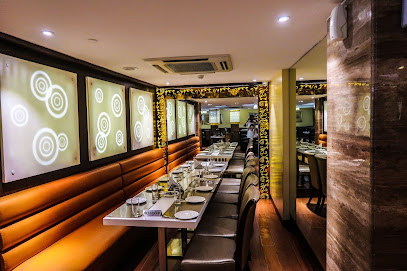
Mocambo Restaurant and Bar
Experience the essence of Kolkata at Mocambo Restaurant and Bar, renowned for exquisite Continental cuisine in an elegant setting.
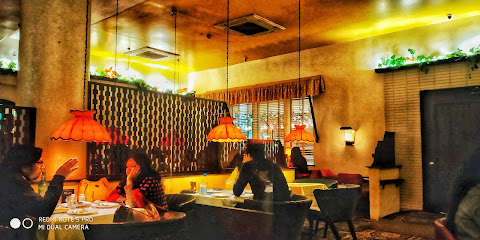
Oudh 1590 Deshapriya Park
Discover authentic Awadhi cuisine at Oudh 1590 in Kolkata—where tradition meets flavor in every dish.
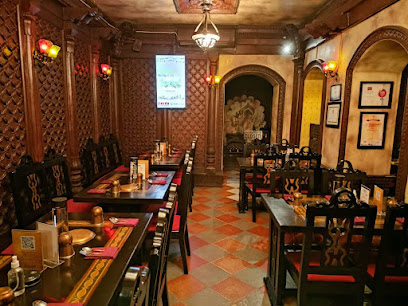
Spice Kraft
Discover the finest modern European dining experience at Spice Kraft in Kolkata – where culinary art meets elegance.
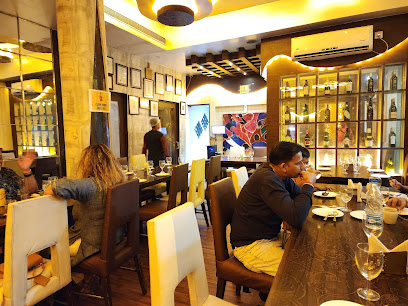
The Bikers Cafe
Discover culinary delights at The Bikers Cafe in Kolkata – where flavor meets fun in a dynamic atmosphere.
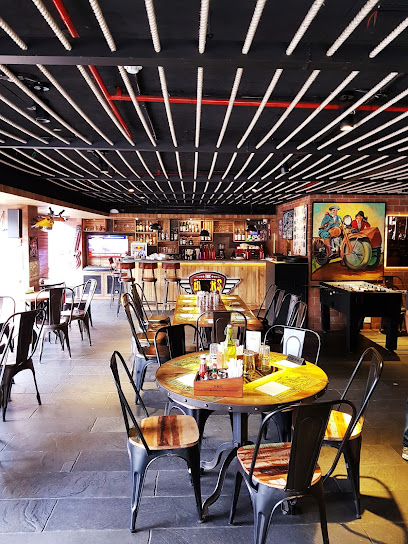
Royal Indian Restaurant
Discover authentic Indian cuisine at Royal Indian Restaurant in Kolkata - home to mouthwatering biryanis and rich flavors.
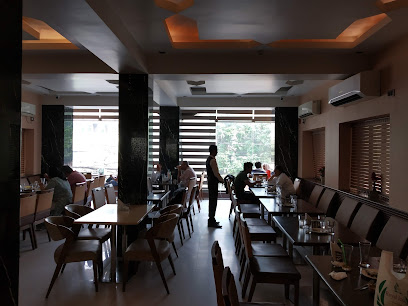
Mainland China
Experience the essence of authentic Chinese cuisine at Mainland China in Kolkata—where every dish tells a story.
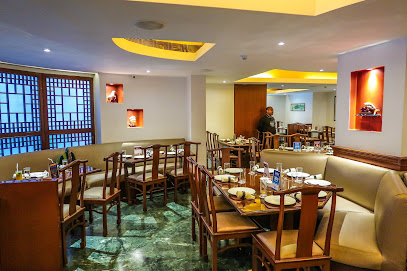
Monkey Bar & The Fatty Bao
Discover the vibrant fusion of Asian cuisine at Monkey Bar & The Fatty Bao with stunning views over Kolkata's skyline.
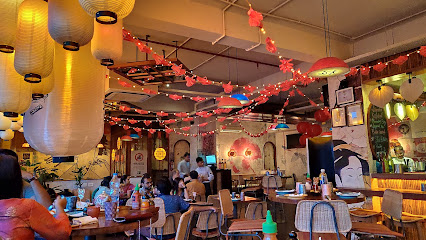
Fly Kouzina
Explore exquisite vegetarian dining at Fly Kouzina in Kolkata with a fusion of Indian, Chinese, Continental & Italian cuisines.
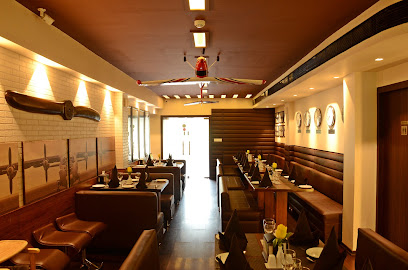
Tandoor Park
Discover authentic Indian and Chinese flavors at Tandoor Park, Kolkata's vibrant culinary destination offering delightful dining experiences.
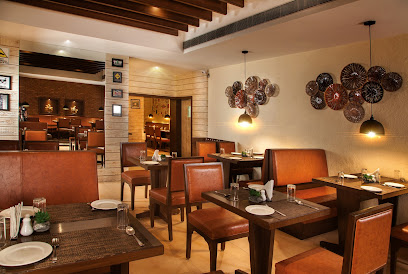
Punjabee Rasoi
Discover authentic Punjabi cuisine at Punjabee Rasoi in Kolkata – where every dish tells a flavorful story.
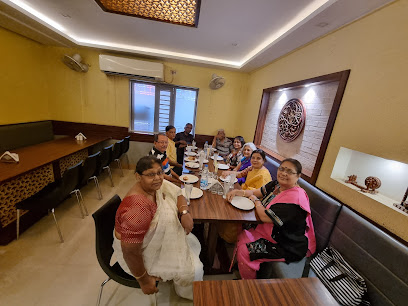
The Saffron Tree
Discover authentic Mughlai and Awadhi cuisine at The Saffron Tree in Kolkata—where tradition meets innovation in every dish.
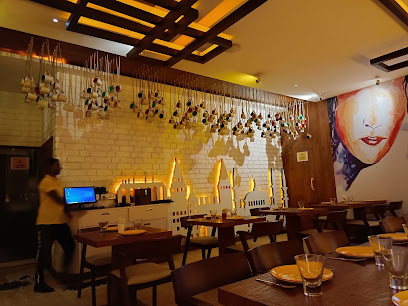
Markets, malls and hidden boutiques
New Market Kolkata
Discover New Market Kolkata, a vibrant shopping haven offering a unique blend of traditional goods, modern fashion, and delectable street food in the heart of the city.
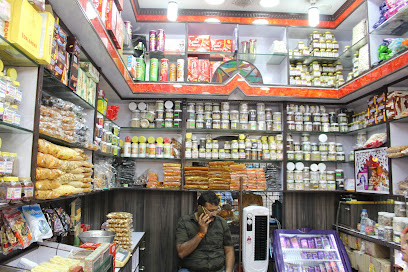
The Collective - Quest Mall, Kolkata
Explore The Collective at Quest Mall, Kolkata - a vibrant shopping hub featuring a diverse range of fashion, accessories, and delightful dining options.
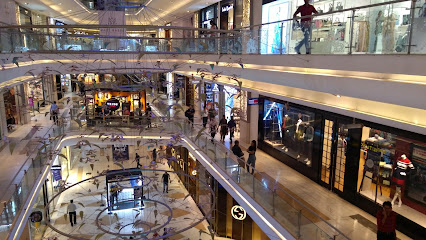
Lifestyle Stores
Explore Lifestyle Stores in Kolkata for an unparalleled shopping experience featuring fashion, beauty, and unique gifts within the vibrant Quest Mall.
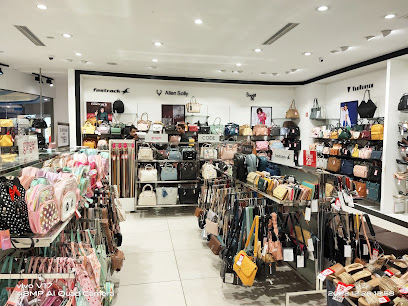
Biswa Bangla Store, Park Street, Kolkata
Discover the essence of Bengal at Biswa Bangla Store, where exquisite handicrafts and unique gifts celebrate local artistry and tradition.
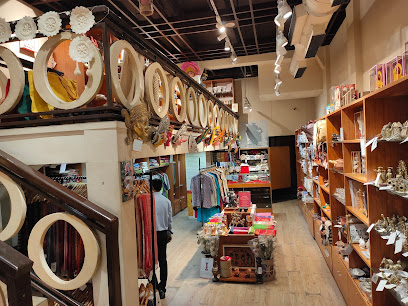
Sunshine
Explore Sunshine, a vibrant handicraft store in Kolkata, showcasing unique artisanal creations reflecting India's rich cultural heritage.
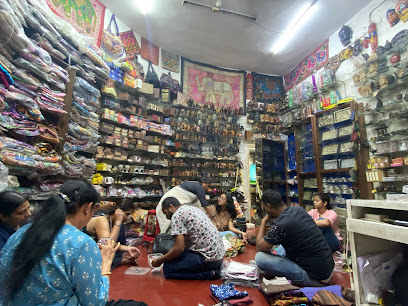
Pernia's Pop-Up Shop, Kolkata
Explore the elegance of bridal wear and contemporary fashion at Pernia's Pop-Up Shop in Kolkata, a must-visit for fashion lovers.
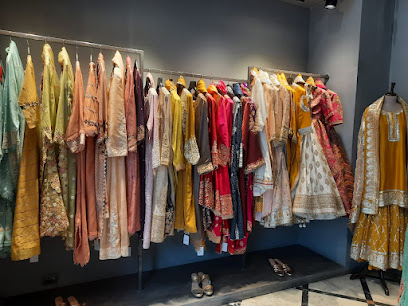
KUNBI- Women's Clothing Store | Buy Handloom Saree Online | Saree Shop | Boutique Store Kolkata
Discover the beauty of handloom sarees and ethnic fashion at KUNBI, Kolkata’s premier boutique for traditional Indian attire.
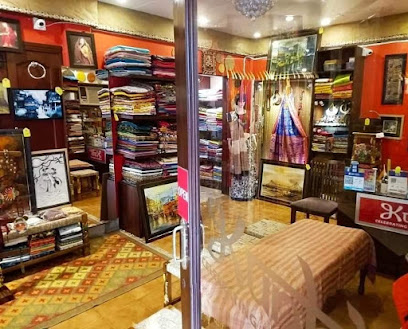
Citrine - The Multi Designer Store
Explore Citrine, Kolkata's ultimate multi-designer store featuring unique clothing and accessories that blend tradition with modern style.
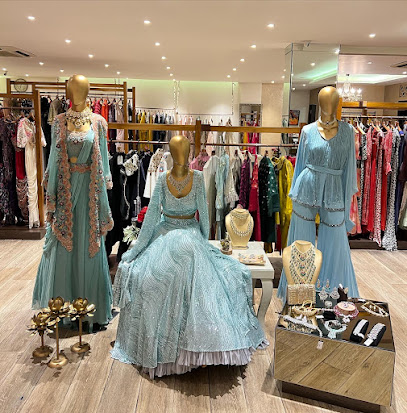
Pink Gift World
Explore Pink Gift World in Kolkata - A treasure trove of unique gifts and enchanting interior decor that reflects the city's vibrant culture.
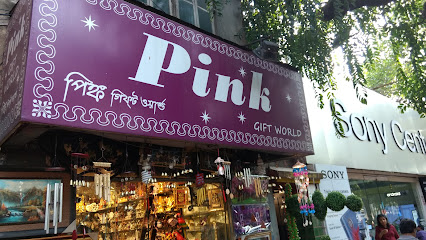
Kunbi Plus- Men's clothing and Handicrafts store
Explore Kunbi Plus for trendy men's clothing and exquisite handicrafts in the heart of Kolkata, a true reflection of Indian artistry and style.
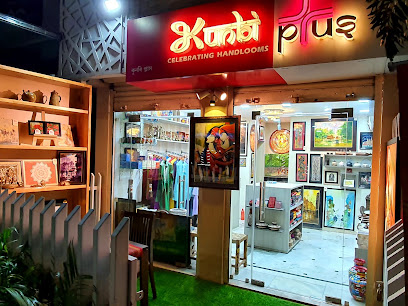
konark collectables
Explore the charm of antiques and collectibles at Konark Collectables in Kolkata's vibrant New Market area, a treasure trove for history lovers.
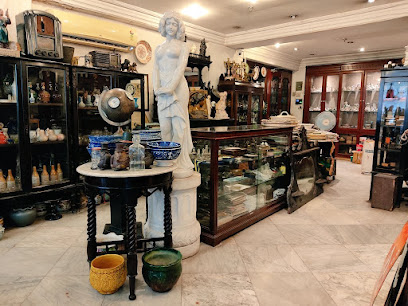
Exclusive Gallery
Explore Kolkata's Exclusive Gallery, where contemporary fashion meets timeless elegance in a stunning women's clothing store.
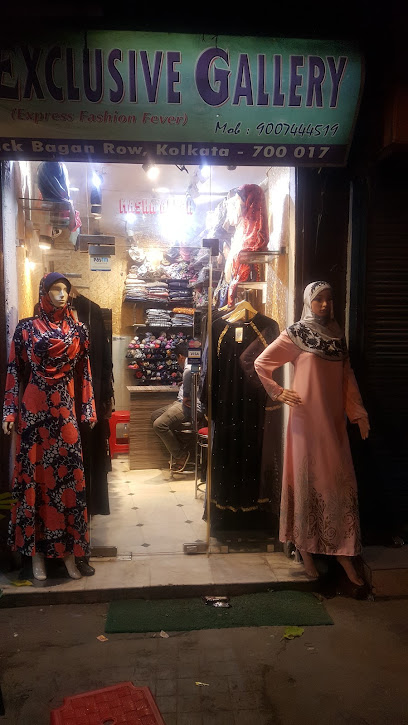
Qrator
Explore Qrator in Kolkata for a remarkable selection of artistic gifts, collectibles, and a glimpse into local culture and creativity.
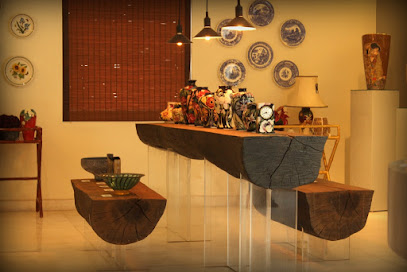
Only For You
Explore Only For You in Kolkata for an exceptional collection of unique gifts, cosmetics, and toys that capture the essence of the city.

The Bengal Store
Discover the essence of Bengal at The Bengal Store, a craft haven in Kolkata showcasing exquisite handmade pottery, ceramics, and unique masks.
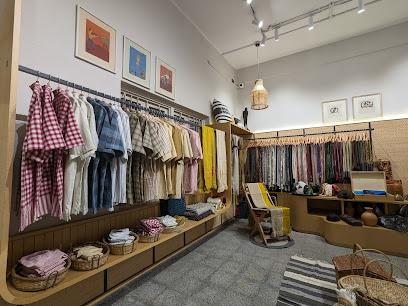
Essential bars & hidden hideouts
10 Downing Street - Salt Lake
Discover the vibrant nightlife at 10 Downing Street - Salt Lake, a premier pub and lounge offering delicious food and drinks in Kolkata.
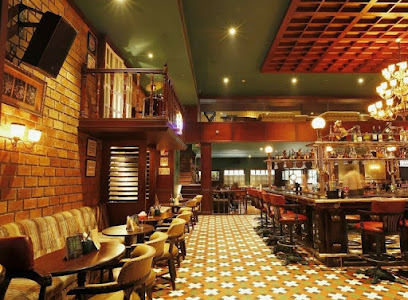
Scrapyard - Brewing Co.
Experience the vibrant atmosphere and exquisite craft beers at Scrapyard - Brewing Co., Kolkata's premier brewpub destination.
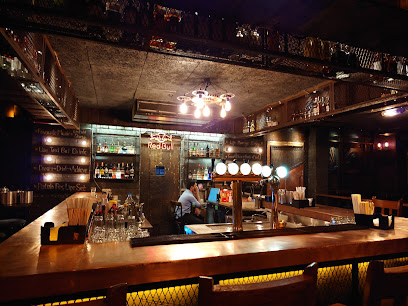
The Irish House, Kolkata
Experience the lively atmosphere and unique fusion of Irish and Indian flavors at The Irish House in Kolkata, a must-visit pub and restaurant.
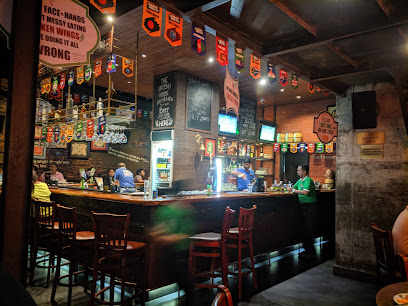
Blue & Beyond Rooftop RestoBar
Experience the vibrant flavors of Kolkata at Blue & Beyond Rooftop RestoBar, where exquisite dining meets breathtaking skyline views.
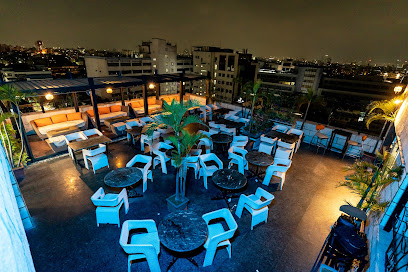
Shisha Bar Stock Exchange
Experience the lively ambiance and exquisite drinks at Shisha Bar Stock Exchange in Kolkata, where every visit promises a memorable night out.
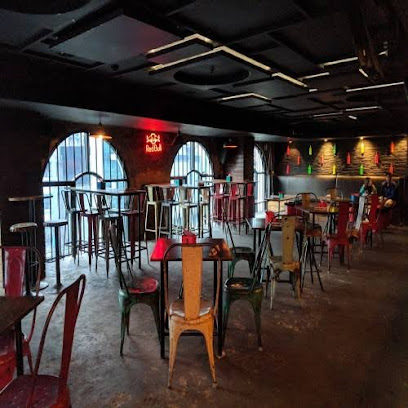
Roxy
Experience the vibrant nightlife at Roxy, a premier pub and disco club in Kolkata, blending delicious cuisine with an electrifying atmosphere.
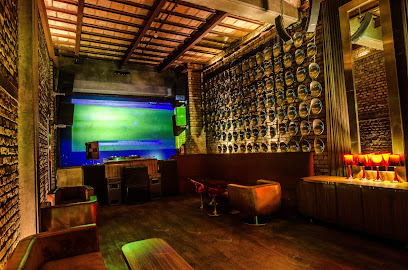
Xrong place Pub & Restaurant
Experience the vibrant nightlife of Kolkata at Xrong Place Pub & Restaurant, where delicious food and drinks meet a lively atmosphere.
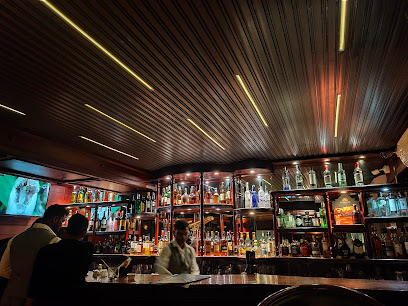
Lord of the Drinks Kolkata
Experience the luxurious charm and vibrant atmosphere of Lord of the Drinks Kolkata, the premier lounge for unwinding in style and savoring exquisite flavors.
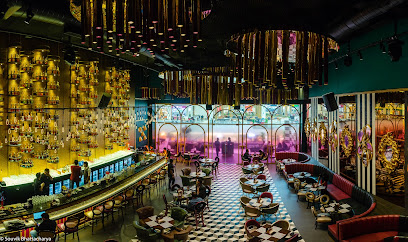
The GRID
Discover The GRID, Kolkata's premier brewpub offering a unique blend of craft beers and delicious cuisine in a vibrant setting.
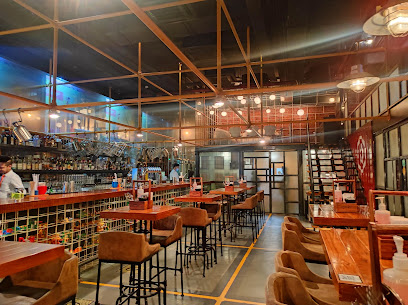
Someplace Else, Kolkata, Park Street Area
Discover Kolkata's vibrant nightlife at Someplace Else, a premier pub offering great food, drinks, and live entertainment in the heart of Park Street.
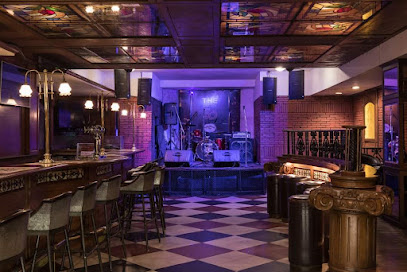
Marlin Restaurant Cum Bar | Best Restaurant Cum Bar Near Garia
Experience the perfect blend of delectable cuisine and vibrant nightlife at Marlin Restaurant Cum Bar in Garia, Kolkata.
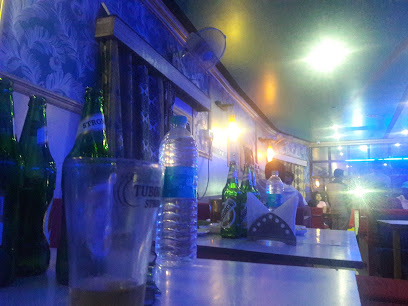
Titos Live Band
Discover Kolkata's vibrant nightlife at Titos Live Band, where delicious food meets electrifying live music in a cultural hotspot.
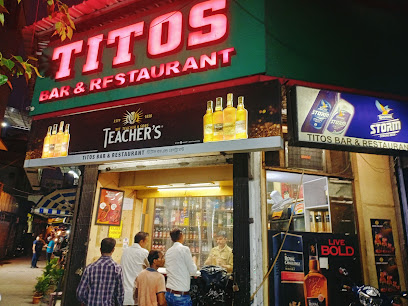
Duke Restaurant And Bar
Explore the vibrant flavors of Kolkata at Duke Restaurant and Bar, where local cuisine meets a lively bar atmosphere.
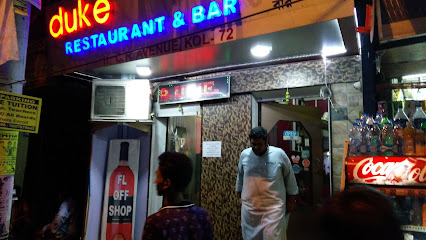
Destination16
Experience the vibrant nightlife of Kolkata at Destination16, a lively pub offering cocktails, music, and delicious bar snacks in the heart of Park Street.
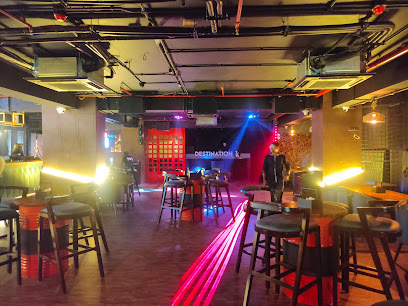
Local Phrases
-
- Helloনমস্কার
[Nomoshkar] - Goodbyeবিদায়
[Biday] - Yesহ্যাঁ
[Hyāṁ] - Noনা
[Nā] - Please/You're welcomeদয়া করে
[Dôyā karē] - Thank youধন্যবাদ
[Dhônyôbād] - Excuse me/Sorryক্ষমা করুন
[Kṣamā karuna] - How are you?আপনি কেমন আছেন?
[Āpni kēmana āchēna?] - Fine. And you?ভাল। এবং আপনি?
[Bhāla. Ēbaṁ āpni?] - Do you speak English?আপনি ইংরেজি কথা বলতে পারেন?
[Āpni iṅrēji kathā bōlatē pārēna?] - I don't understandআমি বুঝতে পারছি না
[Āmi bujhē pārachhi nā]
- Helloনমস্কার
-
- I'd like to see the menu, pleaseঅনুগ্রহ করে মেনু তালাশ করতে চাই
[Anugrôh karē mēnu tālāś karatē chai] - I don't eat meatআমি মাংস খাই না
[Āmi māṅsa khāi nā] - Cheers!শুভেচ্ছা!
[Śubhēchchā!] - I would like to pay, pleaseঅনুগ্রহ করে আমি দাম দিতে চাই
[Anugrôh karē āmi dāma ditē chai]
- I'd like to see the menu, pleaseঅনুগ্রহ করে মেনু তালাশ করতে চাই
-
- Help!সাহায্য!
[Sāhāy'a!] - Go away!চলে যাও!
[Chalē yā'ō!] - Call the Police!পুলিশকে কল করুন!
[Puliśakē kala karuna!] - Call a doctor!ডাক্তারকে কল করুন!
[Ḍāktārkē kala karuna!] - I'm lostআমি হারিয়ে গেছি
[Āmi hāriẏē gēchi] - I'm illআমি অসুস্থ
[Āmi asus'tha]
- Help!সাহায্য!
-
- I'd like to buy...আমি ... কিনতে চাই
[Āmi ... kinatē chai] - I'm just lookingআমি মাত্র দেখছি
[Āmi mātra dēkhachi] - How much is it?এটা কত টাকা?
[Ēṭā kata ṭākā?] - That's too expensiveএটা খুব মহঁগা
[Ēṭā khuba mahm̐gā] - Can you lower the price?আপনি দাম কমাতে পারবেন?
[Āpni dāma kamātē pārabēna?]
- I'd like to buy...আমি ... কিনতে চাই
-
- What time is it?এখন কতটা বাজে?
[Ēkhana kataṭā bājē?] - It's one o'clockএকটা ঘণ্টা
[Ēkaṭā ghaṇṭā] - Half past (10)(দশের) আধাটা
[(Daśēra) ādhāṭā] - Morningসকাল
[Sakāla] - Afternoonদুপুর
[Dupura] - Eveningসন্ধ্যা
[Sāndhyā] - Yesterdayগতকাল
[Gatakāla] - Todayআজ
[Āja] - Tomorrowআগামীকাল
[Āgāmīkāla] - 1এক
[Ēka] - 2দুই
[Dui] - 3তিন
[Tina] - 4চার
[Cāra] - 5পাঁচ
[Pām̐ca] - 6ছয়
[Chôy'a] - 7সাত
[Sāta] - 8আট
[Āṭa] - 9নয়
[Nôẏa] - 10দশ
[Daśa]
- What time is it?এখন কতটা বাজে?
-
- Where's a/the...?... কোথায়?
[... Kōthāẏa?] - What's the address?ঠিকানা কি?
[Ṭhikānā ki?] - Can you show me (on the map)?আপনি আমাকে (ম্যাপে) দেখাতে পারবেন?
[Āpni āmākē (myāpē) dēkhātē pārabēna?] - When's the next (bus)?পরের (বাস) কবে?
[Parēra (bāsa) kabē?] - A ticket (to ....)একটি টিকেট (... এ)
[Ēkaṭi ṭikēṭa (... ē)]
- Where's a/the...?... কোথায়?
History of Kolkata
-
Kolkata, originally known as Calcutta, was founded by Job Charnock, an agent of the British East India Company, in 1690. The city was formed by the amalgamation of three villages: Sutanuti, Gobindapur, and Kalikata. It quickly grew into a major trading post for the British in India.
-
In 1757, the Battle of Plassey marked a significant turning point in Kolkata's history. The British East India Company, under the leadership of Robert Clive, defeated the Nawab of Bengal, Siraj-ud-Daulah. This victory laid the foundation for British colonial rule in India, with Kolkata becoming the capital of British India.
-
The Black Hole of Calcutta incident occurred in 1756 when Nawab Siraj-ud-Daulah captured Fort William. The British prisoners were allegedly confined in a small dungeon, leading to the death of many due to suffocation and heat. This event fueled British animosity towards the Nawab and was a precursor to the Battle of Plassey.
-
The 19th century saw the advent of the Bengal Renaissance, a period of cultural, social, and intellectual awakening in Kolkata. Key figures like Raja Ram Mohan Roy, Ishwar Chandra Vidyasagar, and Rabindranath Tagore spearheaded reforms in education, literature, and social practices, shaping modern Bengali society.
-
The partition of Bengal in 1947, coinciding with India's independence from British rule, had a profound impact on Kolkata. The city witnessed significant communal violence and an influx of refugees from East Pakistan (now Bangladesh). Despite these challenges, Kolkata emerged as a center of political activity and cultural resilience.
-
In the late 1960s and early 1970s, Kolkata became a hub for the Naxalite movement, a radical communist insurgency. The movement, named after the village of Naxalbari in West Bengal, sought to overthrow the government through armed rebellion. The city experienced significant political turmoil during this period.
-
The late 20th century saw Kolkata grappling with economic decline and infrastructural challenges. However, the early 21st century marked a period of revival, with efforts to modernize the city's infrastructure, promote IT and service industries, and preserve its cultural heritage. Today, Kolkata balances its rich historical legacy with contemporary development.
-
Kolkata is renowned for its cultural diversity and vibrant arts scene. The city hosts numerous festivals, including Durga Puja, which is celebrated with grandeur and fervor. Kolkata is also home to iconic institutions like the Indian Museum, Victoria Memorial, and the prestigious Kolkata Book Fair, reflecting its rich cultural tapestry.
Kolkata Essentials
-
Kolkata, also known as Calcutta, is well-connected by air, rail, and road. The Netaji Subhash Chandra Bose International Airport (CCU) serves both domestic and international flights, located about 17 km from the city center. Major airlines operate frequent flights to Kolkata from cities across India and around the world. The city is also a major railway hub with two main stations: Howrah Junction and Sealdah, connecting Kolkata to other major Indian cities. For those traveling by road, Kolkata is accessible via national highways and state highways, with regular bus services from neighboring states and cities.
-
Kolkata offers a variety of transportation options including metro, buses, taxis, auto-rickshaws, and trams. The Kolkata Metro is efficient for getting around the city quickly, especially during peak hours. Public buses operated by the West Bengal Transport Corporation cover extensive routes across the city. Yellow taxis are iconic and widely available, but always ensure the meter is used. App-based cab services like Uber and Ola are also popular. Auto-rickshaws are convenient for short distances. The heritage trams provide a unique way to explore the city, although they are slower.
-
The official currency is the Indian Rupee (INR). Credit and debit cards are widely accepted in hotels, restaurants, and major shopping areas. However, it is advisable to carry some cash for small purchases and in places where card payment facilities may not be available. ATMs are abundant throughout the city. Currency exchange services are available at the airport, banks, and authorized exchange centers.
-
Kolkata is generally considered safe for tourists, but it is important to stay vigilant. Avoid isolated areas, especially at night. Areas like Sealdah and Howrah railway stations can be crowded, so keep an eye on your belongings to avoid pickpocketing. Park Street and New Market are bustling areas where tourists should also exercise caution. Always use registered taxis or app-based cabs rather than accepting unsolicited rides.
-
In case of emergency, dial 100 for police assistance, 101 for fire services, and 102 for medical emergencies. Most hospitals in Kolkata have emergency departments, with notable ones including Apollo Gleneagles Hospital, Fortis Hospital, and AMRI Hospital. Pharmacies are plentiful and can provide over-the-counter medications. It is advisable to have travel insurance that covers medical emergencies.
-
Fashion: Do dress modestly, especially when visiting religious sites. Avoid wearing revealing clothing. Religion: Do respect local customs and traditions. Remove your shoes before entering temples and cover your head if required. Public Transport: Do be respectful and give up your seat to elderly passengers. Don’t eat or drink on public transport. Greetings: Do greet people with a 'Namaste' or a handshake. Eating & Drinking: Do try local delicacies and accept food offerings graciously. Don’t refuse hospitality, as it is considered impolite. Avoid drinking tap water; opt for bottled water instead.
-
To experience Kolkata like a local, visit the local markets such as New Market and Gariahat for an authentic shopping experience. Enjoy street food like puchka (pani puri), kathi rolls, and jhal muri from reputable vendors. Take a leisurely tram ride, especially through areas like College Street and Esplanade. Explore the city's rich literary and cultural heritage by visiting the College Street Coffee House and the Indian Museum. Engage with locals; Kolkatans are known for their friendly and welcoming nature. Don't miss a boat ride on the Hooghly River to see the iconic Howrah Bridge and Vidyasagar Setu.
Trending Landmark in Kolkata
Nearby Cities to Kolkata
-
Things To Do in Jessore
-
Things To Do in Khulna
-
Things To Do in Rajshahi
-
Things To Do in Barisal
-
Things To Do in Dhaka
-
Things To Do in Comilla
-
Things To Do in Ranchi
-
Things To Do in Agartala
-
Things To Do in Chittagong
-
Things To Do in Rangpur
-
Things To Do in Bhubaneswar
-
Things To Do in Cox's Bazar
-
Things To Do in Sylhet
-
Things To Do in Siliguri
-
Things To Do in Aizawl


















